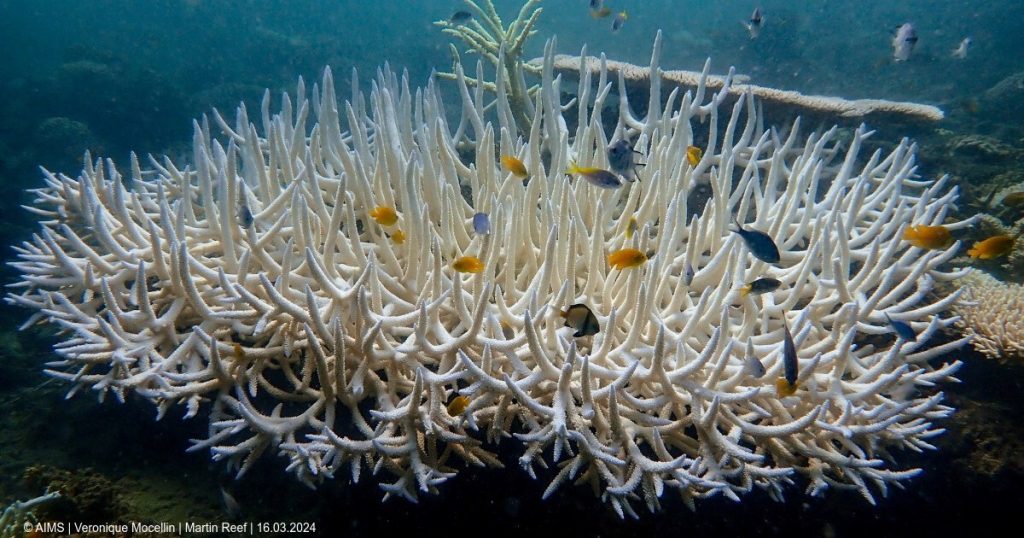The mass bleaching event taking place in coral reefs around the world is a result of high ocean temperatures. This event, the fourth of its kind, has been declared a global crisis by the National Oceanic and Atmospheric Administration and its partners. Coral reefs are essential to the marine ecosystem, providing habitats for a wide variety of marine species. With their survival now under threat, urgent action is needed to address the root causes of the bleaching event and prevent further damage to these fragile ecosystems.
High ocean temperatures are the primary cause of coral bleaching, a process in which corals expel the algae that live in their tissues, turning them white. This expulsion not only weakens the corals but also disrupts the entire ecosystem they support. As a result, the biodiversity and productivity of the oceans are at risk if coral reefs continue to decline. The current mass bleaching event is a stark reminder of the urgent need to address the impacts of climate change, including rising sea temperatures, on marine ecosystems.
The effects of coral bleaching extend far beyond the coral reefs themselves. Many marine species rely on coral reefs for food, shelter, and breeding grounds, so a decline in coral health can have ripple effects throughout the entire ocean ecosystem. In addition, coral reefs provide valuable services to humans, such as coastal protection and income from tourism. As such, the current bleaching event not only threatens marine biodiversity but also has significant economic and social implications that cannot be ignored.
Addressing the global coral bleaching crisis requires a coordinated effort among governments, conservation organizations, and the private sector. Key actions include reducing greenhouse gas emissions to slow down the rate of climate change, establishing marine protected areas to safeguard coral reefs, and implementing sustainable fishing practices to reduce stress on marine ecosystems. In addition, research and monitoring efforts must be intensified to better understand the causes and impacts of coral bleaching and develop effective conservation strategies.
The urgency of the global coral bleaching crisis cannot be overstated, as the survival of coral reefs is crucial for the health and stability of marine ecosystems worldwide. The current mass bleaching event is a stark reminder of the devastating impacts of climate change on our oceans and the urgent need for action to address this threat. By working together to address the root causes of coral bleaching and protect these vital ecosystems, we can help ensure the long-term health and sustainability of our oceans for future generations.
In conclusion, the mass bleaching event threatening coral reefs around the world is a global crisis that requires immediate action to address the root causes of this phenomenon. High ocean temperatures, a result of climate change, are the primary driver of coral bleaching, which poses a significant threat to marine biodiversity and ecosystem stability. To protect coral reefs and the valuable services they provide, coordinated efforts are needed to reduce greenhouse gas emissions, establish marine protected areas, and implement sustainable fishing practices. By taking decisive action now, we can help ensure the survival of coral reefs and the long-term health of our oceans.


